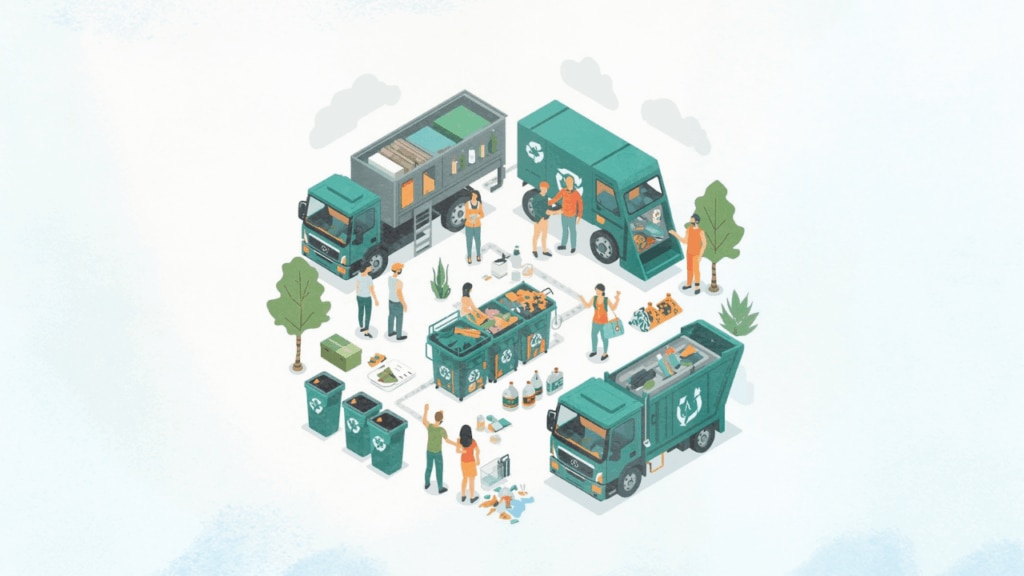Rashidah Kaleem, Myanmar

With global development and industrialisation, population density has increased, and so has pollution. Waste generation has risen significantly, placing immense pressure on municipalities and the environment. While developed countries are adopting advanced technologies to manage waste, many developing and conflict-affected regions still rely on unsafe practices such as open burning.
Plastic waste, in particular, has emerged as one of the most serious environmental challenges facing humanity today. In developed countries, modern facilities help reduce waste generation, such as waste treatment facilities and recycling centres for bulky waste to be exchanged from old to new ones. In developing or underdeveloped countries, especially those affected by conflict or emergencies, waste management is often absent. Municipal collection, transportation, and final disposal are either limited or nonexistent.
Case in point
Our country, Myanmar, is facing growing challenges in waste management due to rapid urbanisation, industrialisation, and population growth. In major cities like Yangon and Mandalay, municipal committees provide some level of waste collection and disposal services, but in small towns and rural areas, coverage is very limited.
This results in open dumping and burning, especially for non-recoverable waste can cause air pollution and health risks. Due to financial constraints, lack of infrastructure, and weak public awareness further hinder effective waste management. To address these challenges, Myanmar needs stronger waste management systems, investment in recycling and composting, public awareness campaigns, and community participation to reduce reliance on open burning and unsustainable practices.
Globally, plastic waste is one of the most dangerous forms of pollution. These materials enter oceans through drainage channels and rivers, killing marine life. Burning plastics releases dioxins, furans, mercury, and PCBs, all of which are toxic to humans and animals. The increase in non-recoverable plastics raises the risk of widespread pollution, climate change, and ecosystem collapse.
Islamic guidance on the environment
Allah the Almighty reminds us in the Holy Quran that, “create not disorder in the earth.” (Surah al-A‘raf, Ch.7: V.57) Allah also commands that “eat and drink but exceed not the bounds; surely, He does not love those who exceed the bounds.” (Surah al-A‘raf, Ch.7: V.32)
This Quranic guidance is very important for us, as this Earth is a blessing from Allah Almighty. Allah has provided us with the sun, air, land, ecosystems, and plants even before we came into existence. It is our responsibility to sustain and protect our planet. Unfortunately, human activities have caused widespread pollution, affecting the environment everywhere.
The Holy Prophet Muhammadsa reinforced this principle: “Cleanliness is half of faith.” (Sahih Muslim, Kitab al-taharah, Hadith 223) He even advised against wasting water, “even if you are at the bank of a flowing river.” (Sunan Ibn Majah, Kitab al-taharah wa-sunanuha, Hadith 425)
Thus, Islam directly connects spiritual purity with environmental responsibility. To change daily practices, you can adopt simple but effective measures: refuse plastic bags, use reusable bags, bring your own water bottles, sort waste systematically into proper bins, and choose sustainable and eco-friendly products.
Guidance of Hazrat Khalifatul Masih Vaa
Hazrat Khalifatul Masih Vaa has frequently reminded the Jamaat about environmental care, recycling, handmade activities and also Huzooraa has instructed every Ahmadi to plant at least two trees annually as an act of service to humanity and as a contribution to combating climate change. Such practices reflect how faith and practical action must go hand in hand.
Your every small effort can be a million times effective on our environment. By taking responsibility for our waste, we protect Allah’s creation and fulfil our role as caretakers of the earth. May Allah enable us to follow His guidance, the noble example of the Holy Prophetsa, and the instructions of Khilafat so that we may live sustainably and safeguard the blessings He has granted us. Amin!

